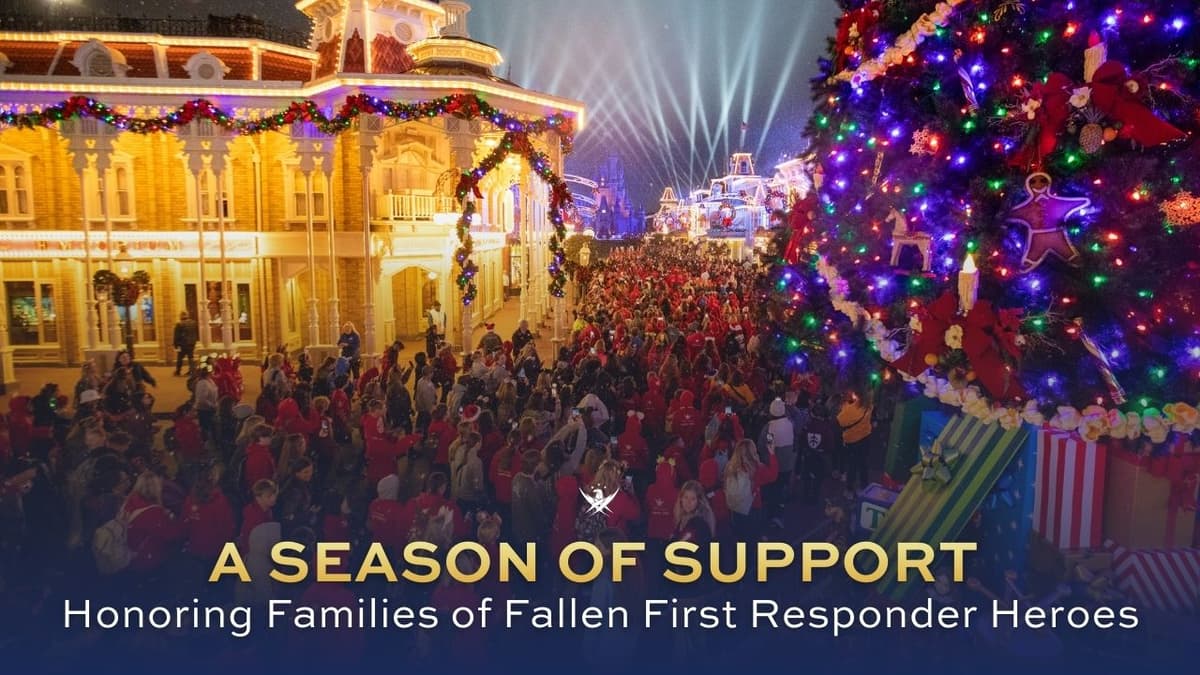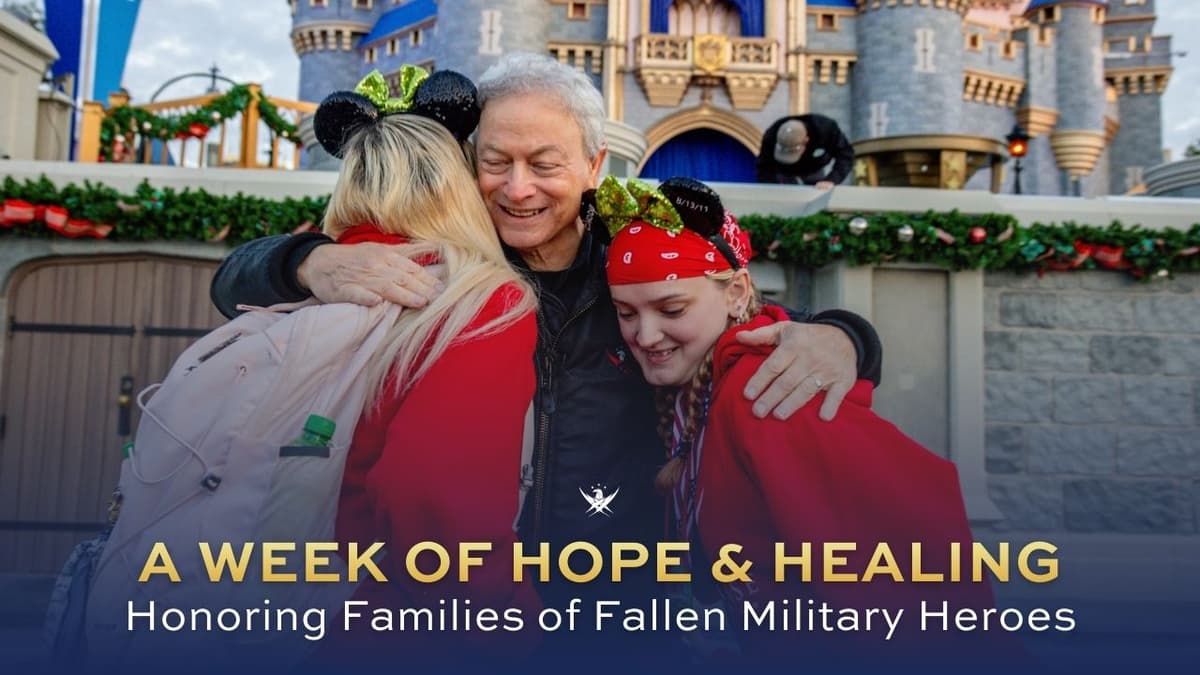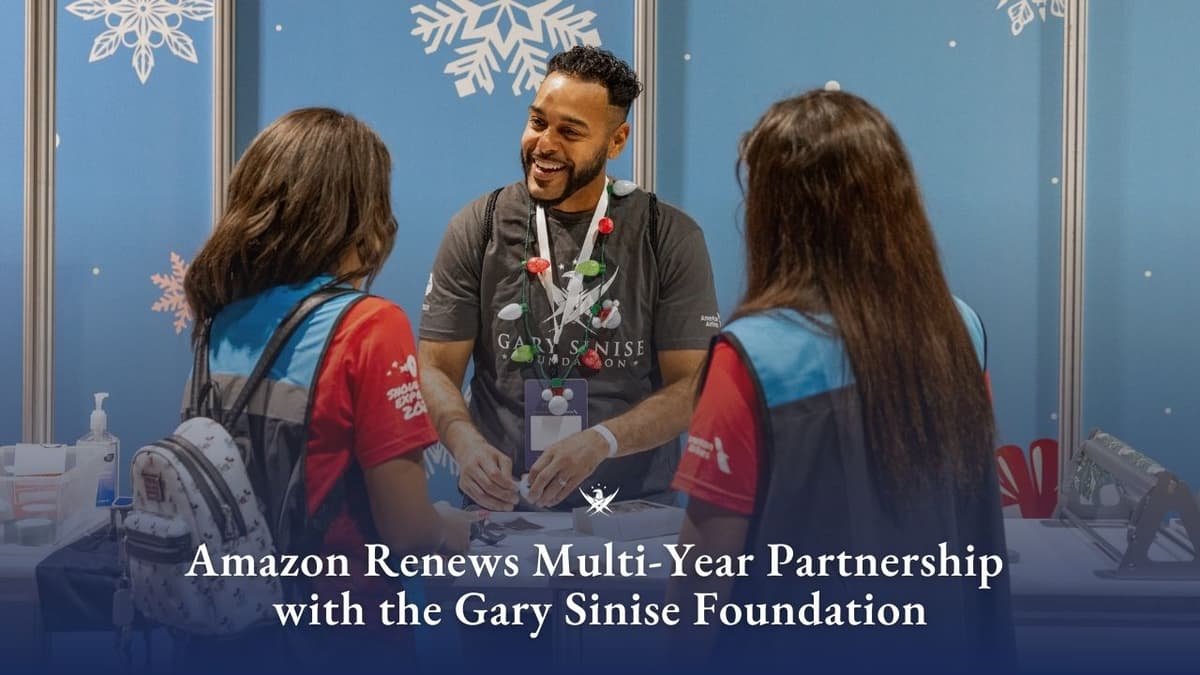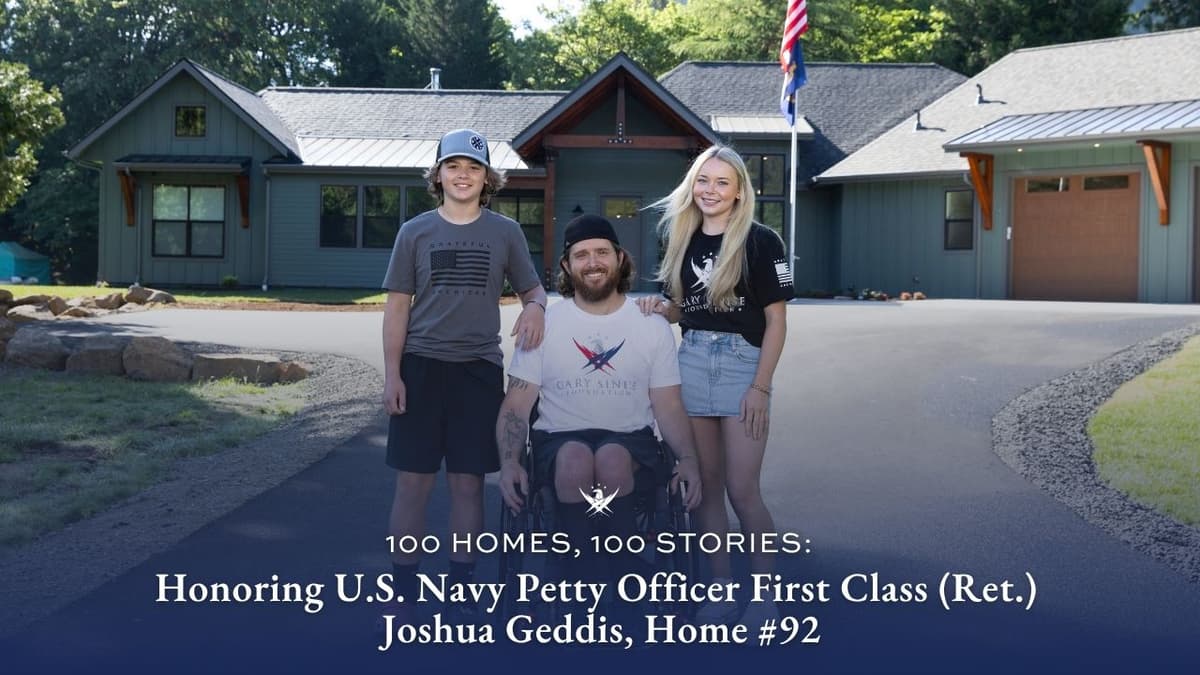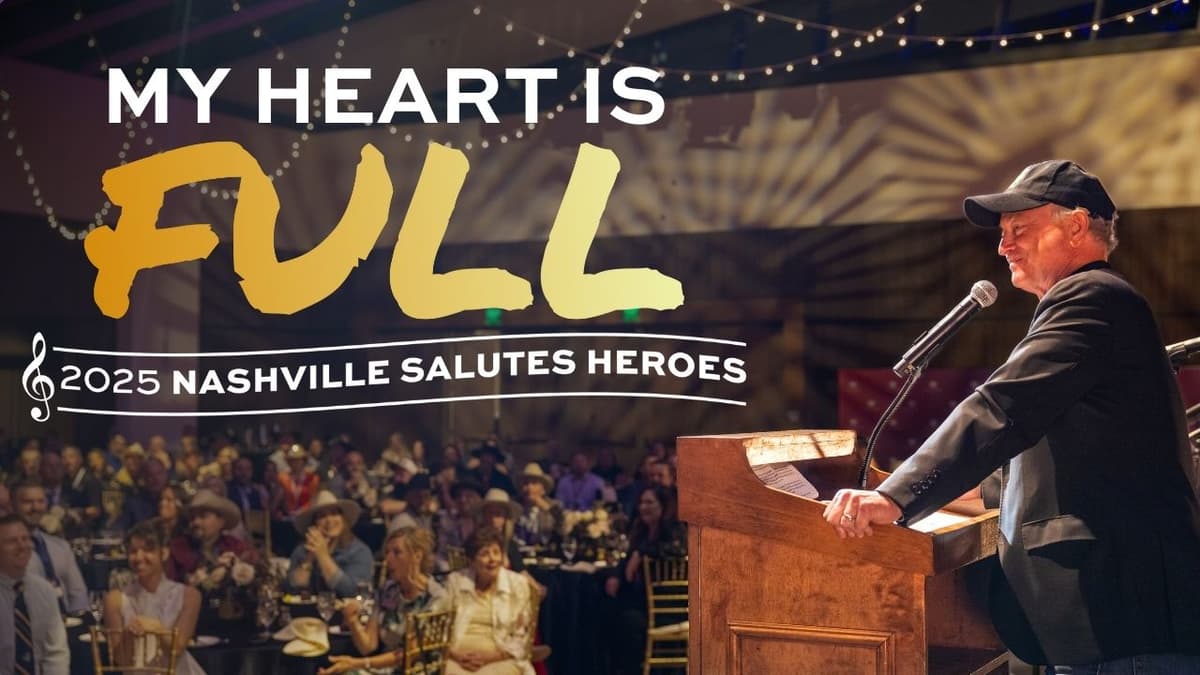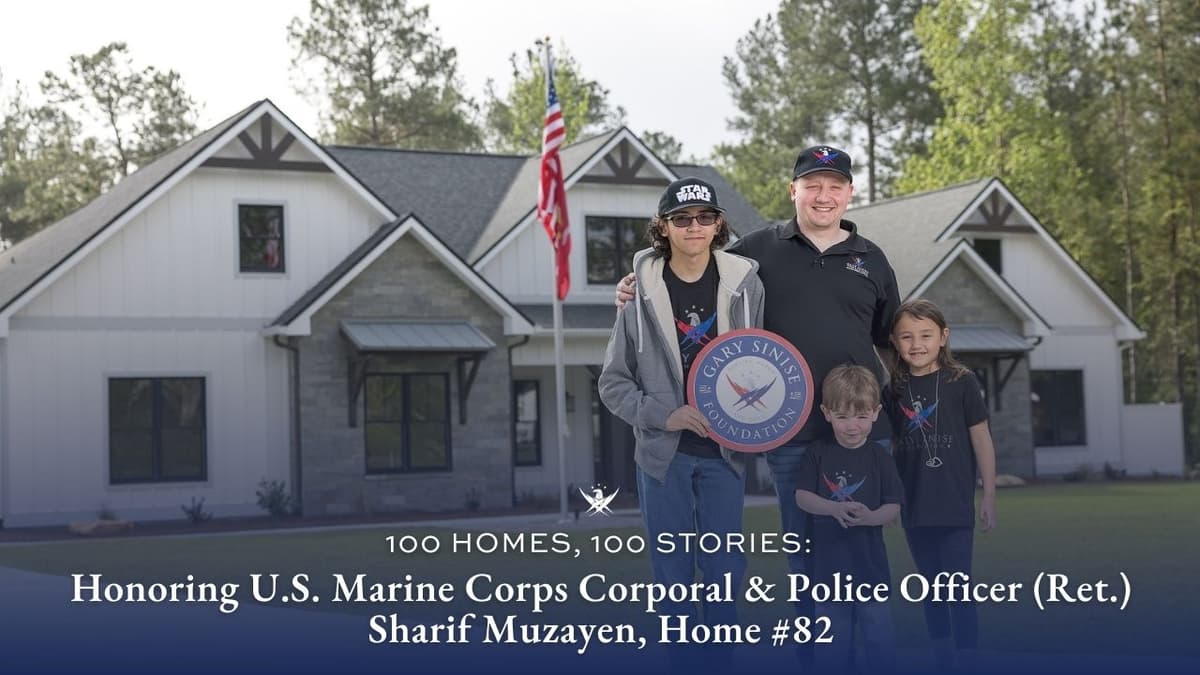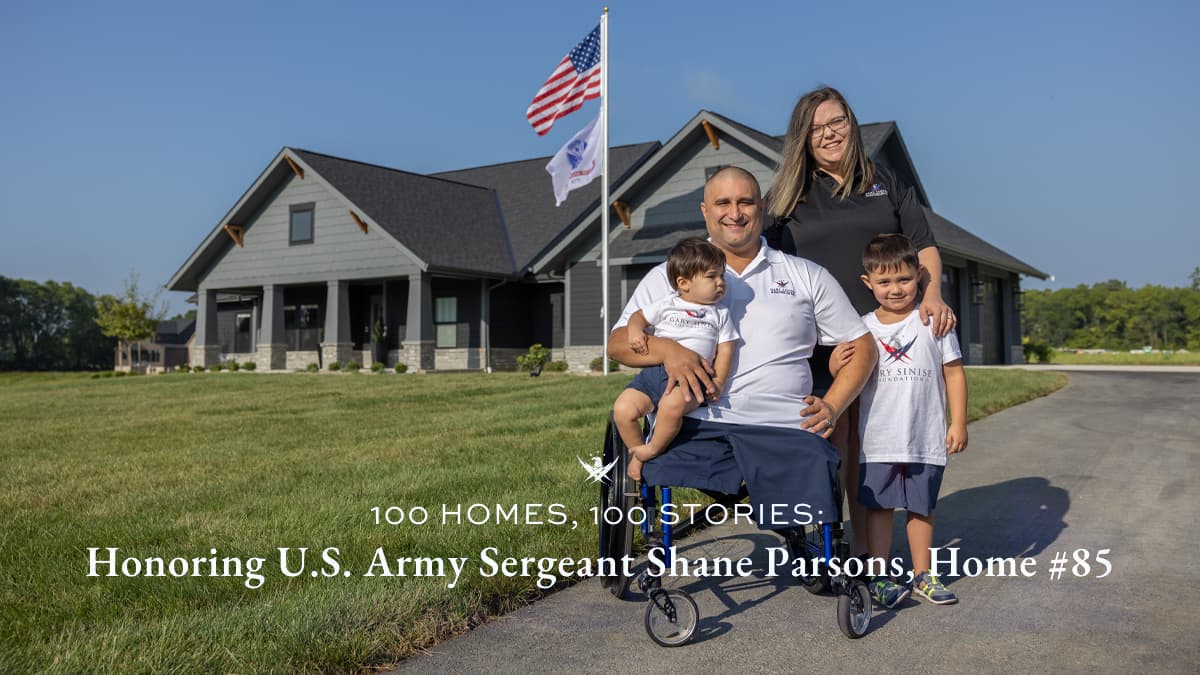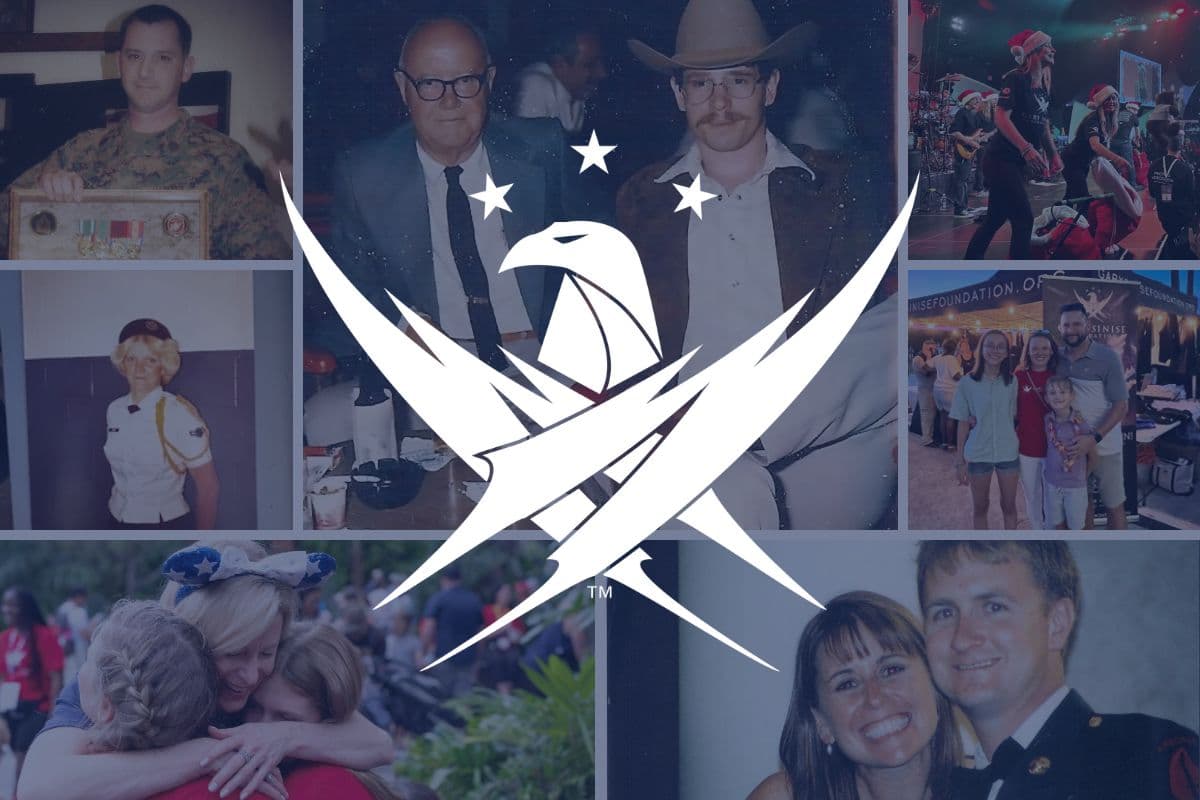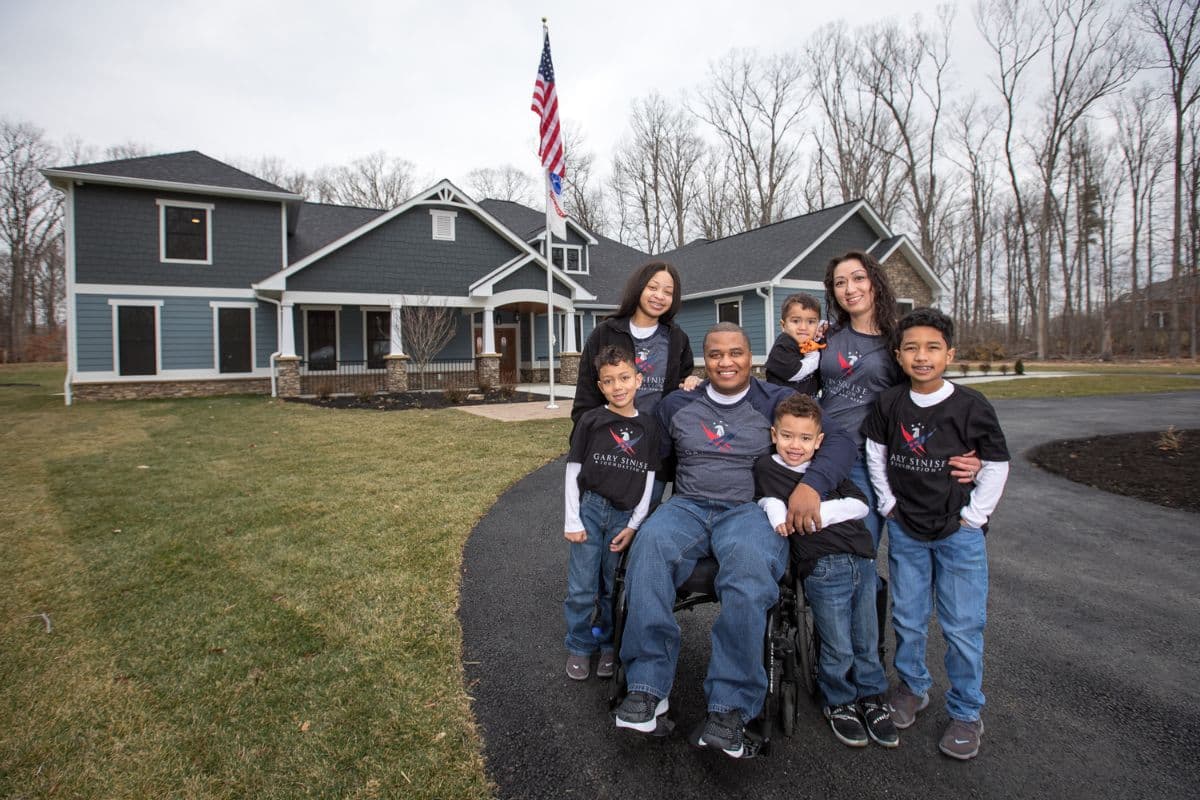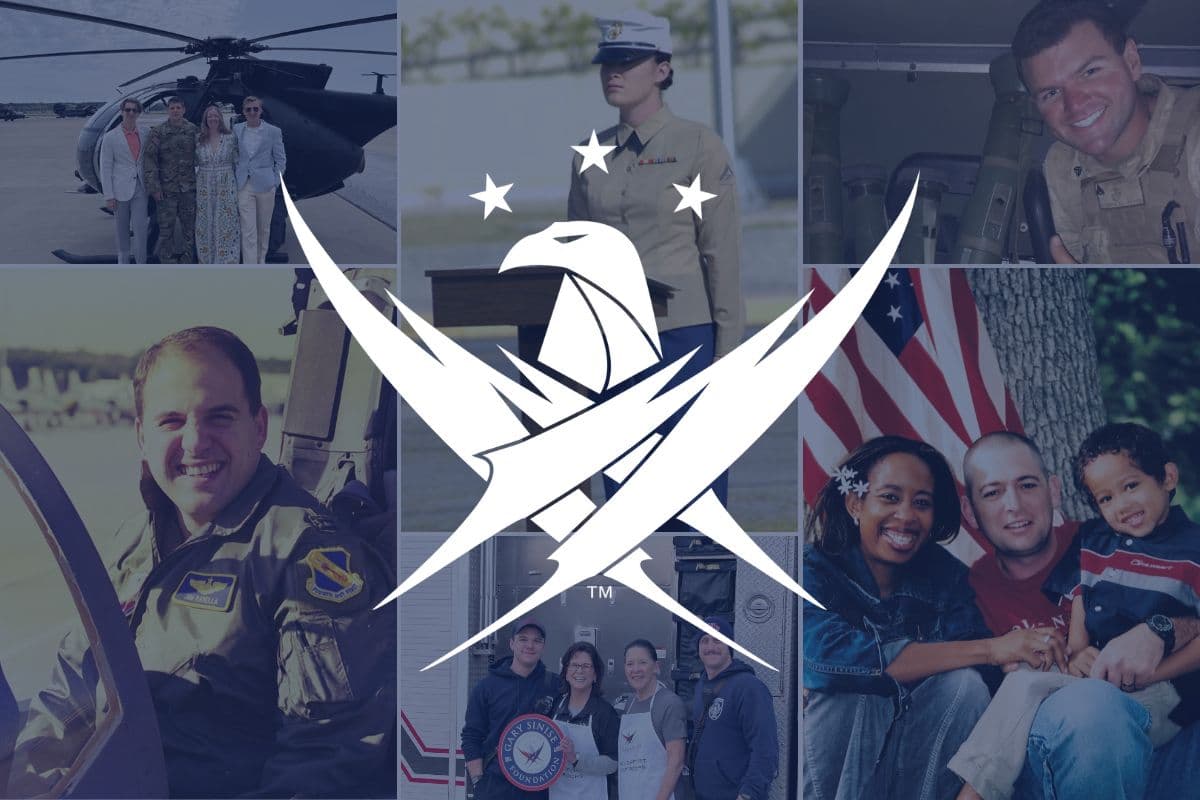Portraits of Giving: Aston Carter Supports Service Members Re-Entering the Civilian Workforce
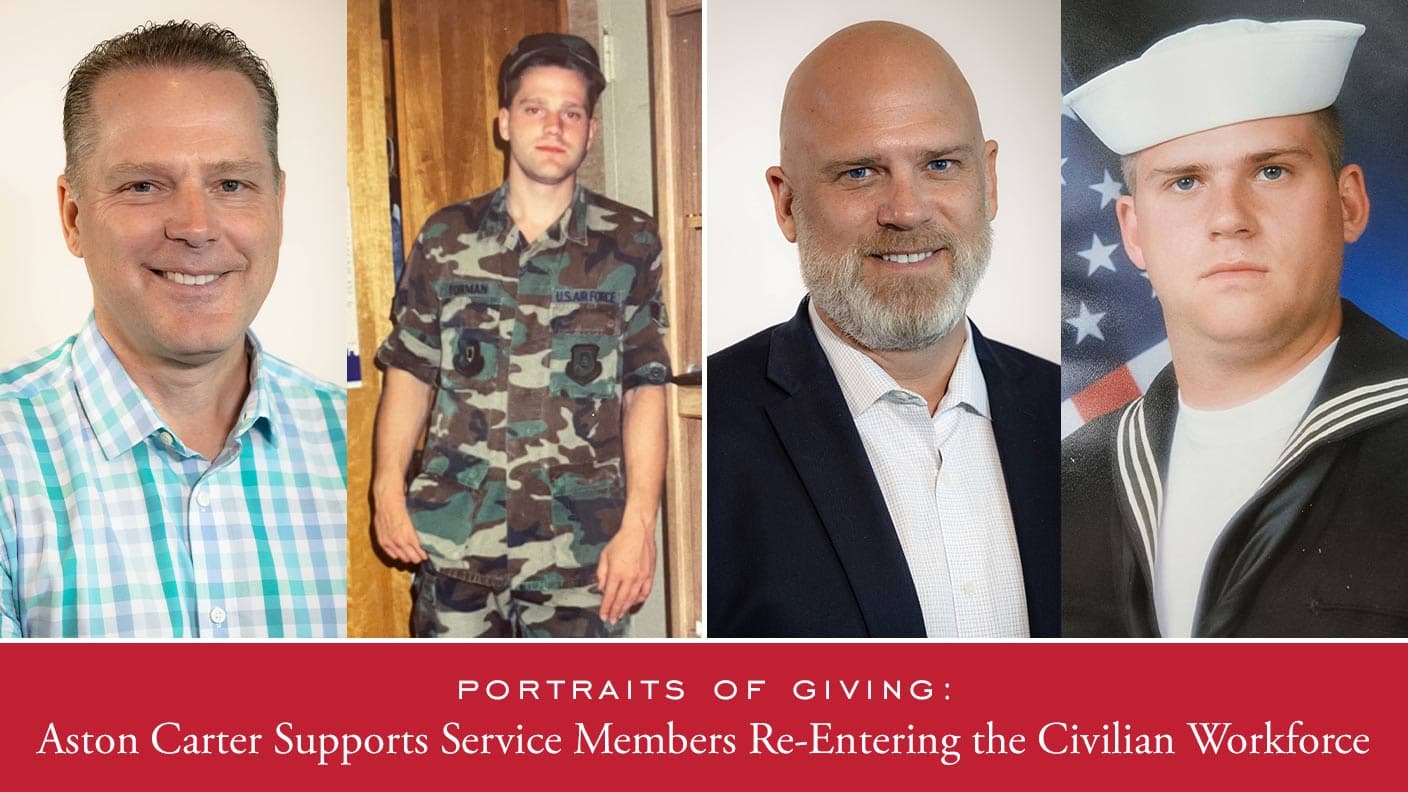
Aston Carter has been a proud partner of the Gary Sinise Foundation since 2018, supporting the families of our fallen service members through our Snowball Express program. Over the years, Aston Carter has generously offered an array of professional services to our Snowball Express families, including application best practices, job search tips, interviewing skills, resume and cover letter review, and mentorship opportunities.
Aston Carter was recently accepted into the U.S. Department of Defense’s SkillBridge program, which provides assistance to transitioning active-duty service members re-entering the civilian workforce. Aston Carter is committed to supporting programs that help motivated and skilled individuals fulfill their career aspirations. With being Aston Carter an approved SkillBridge partner, service members will be better set up for success with access to extensive training options, hands-on experience, and opportunities for full-time employment.
We recently had the great pleasure of meeting with Aston Carter President, Stuart Ferguson, a proud United States Navy Veteran, as well as Chief Financial Officer, Steve Forman, who served in the United States Air Force. Both are proud Veterans and committed to serving their brothers and sisters in arms. During our interview with them, we were able to dive into what advice they would give service members transitioning out of the military, their mission of service to our Veterans, and how proud they are about Aston Carter’s partnership with the DoD’s SkillBridge Program
What inspired you to join the military?
Steve: What inspired me was that my father served two tours in Vietnam, and my grandfather served in World War II. I wanted to follow in their footsteps. I grew up in a small, patriotic town in the Midwest, and the military was something I always wanted to experience. I also had a high sense of adventure; I wanted to travel overseas and see the world.
Stuart: I also grew up in a small town in Georgia, and you had three options growing up. You worked at the carpet mill, sold drugs, or got out. Growing up with a single mom, I didn’t have a lot of options. I struggled with maturity, discipline, and accountability. I needed structure. When I got to the point where I knew I needed additional development, I also realized I had a generational commitment to the military. My grandfather was in World War II in the Navy, and my father was a Navy Nuke in Vietnam, so the military became an amazing option. The GI bill was a goal, and the ability to achieve a VA home loan was also a big driver for me. When you added in the leadership and discipline, I knew I would achieve on top of it, it became a no-brainer decision for me. The military provided me with a purpose.
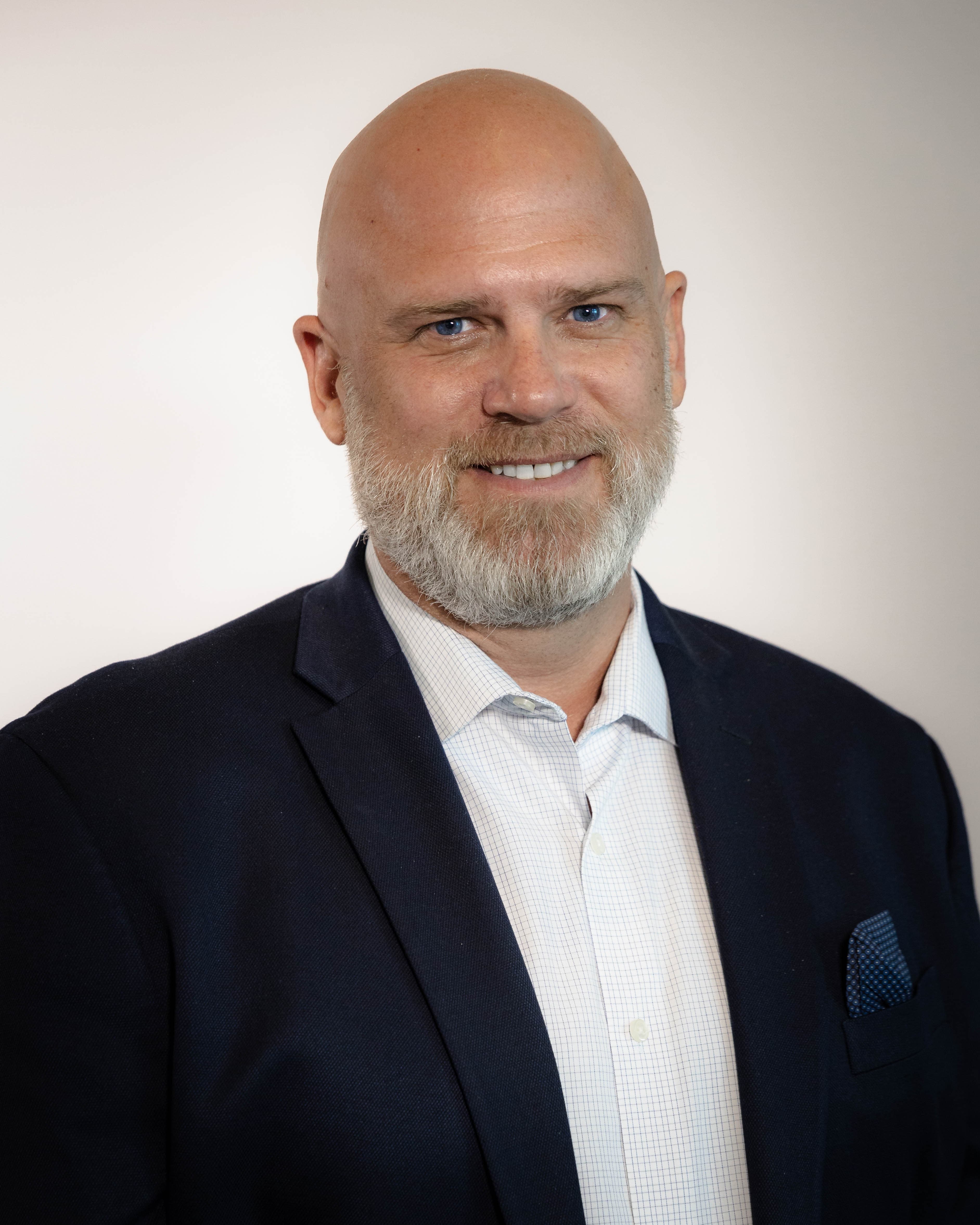
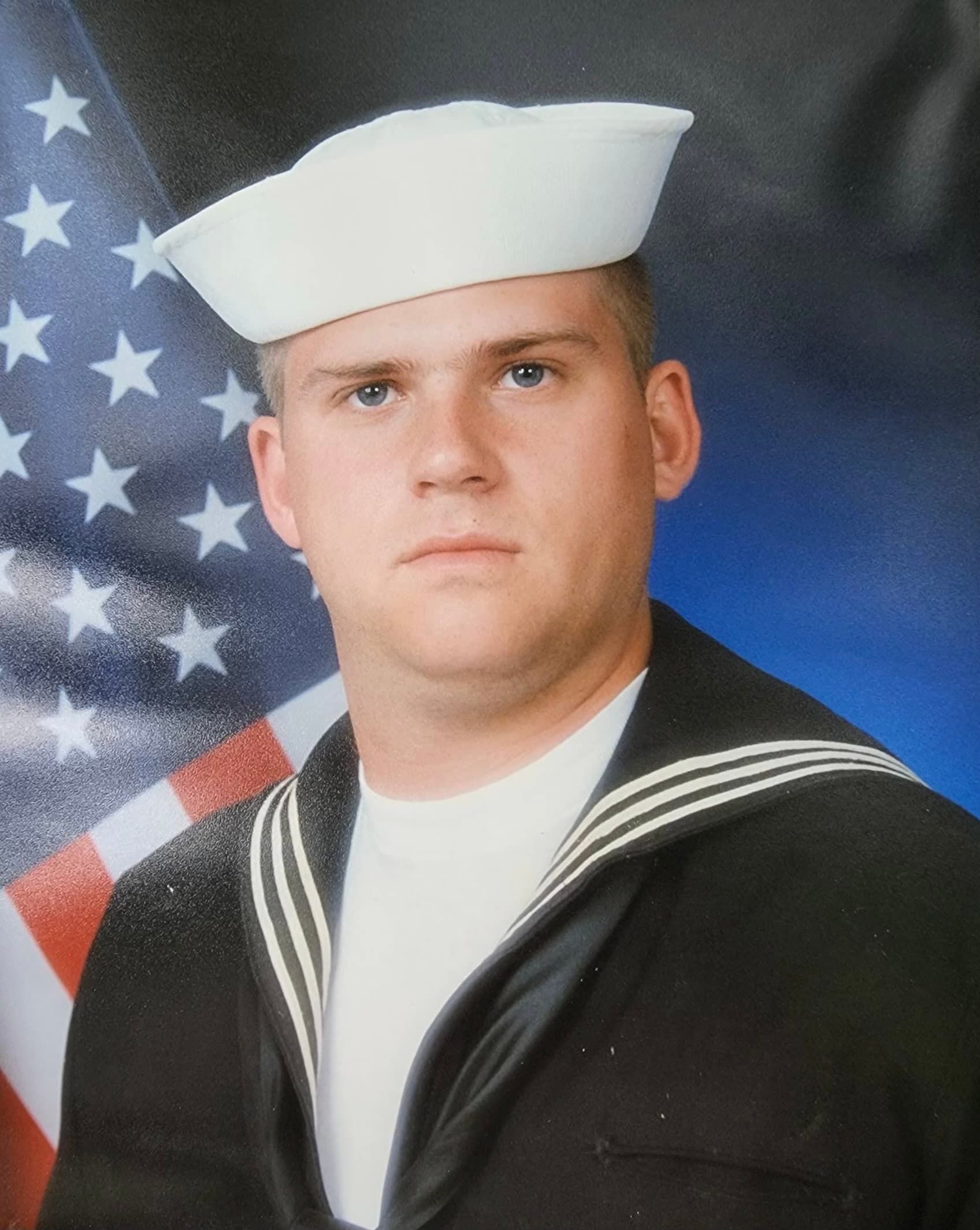
What are some lessons learned during your years of service that helped in your transition to civilian life or life in general?
Steve: I had discipline and structure growing up from my family, but also the school I attended provided that as well. It was about being part of a team and understanding that you can’t do things alone. That’s a huge part of basic training. Certainly, work ethic, commitment, and working towards a common mission were also invaluable. That's so underrated. The military was also a great place to learn both leadership and independence. We talk a lot now about diversity, equality, and inclusion, but I took a lot of that from my military experience, especially being from a small town that didn’t have a lot of diversity. To put aside all of those differences and work together, and respect and value those differences.
Stuart: For me, it was the importance of understanding what standards and purpose were. Every position in the military had a standard to meet, and you learn to understand your role and responsibility. It highlighted the importance of being an expert in your space and, more importantly, being responsible for what your purpose was. It also gave authority a purpose, rather than rebelling against it. An understanding of hierarchy, decision-making, and how that cascaded down. Second, is the feeling of unconditional inclusion and working with men and women you were counting on to survive. Finally, I learned how hard it was to transition from the military to a civilian world where there are no rules, and you have no control.
What advice would you give military folks transitioning out of the military?
Stuart: Haha, that’s somewhat of a loaded question. I had a lot of fun my first year out of the military. At that time, I didn’t look to the military for direction; I looked to family and friends for migration into the civilian world. My advice is not to wait when you transition back into the civilian world. I was overwhelmed by how much the world, technology, and corporate politics had changed. It’s important to understand how your military service applies to the real world and how your specialties in military service apply to jobs in the real world. Be clear about what opportunities are available based on your leadership/combat experience and how does that match the current world’s needs. In the current economy, those skills are in very high demand. The ability to lead is a skill that consistently comes out of the military.
Steve: You can never start to prepare early enough. The tendency is to wait until the very end, and then you’re scrambling. Instead, utilize the resources that are available. I was recently at The Masters with two of our clients, both former military officers. They got their jobs through the Junior Military Officer Program, which taught them skills around resume building, writing, and mock interviewing. Companies need to realize the benefits of having a military background. They’re currently wired to look at relevant experience, versus the benefits of someone with a military background who has tremendous leadership and organizational skills.
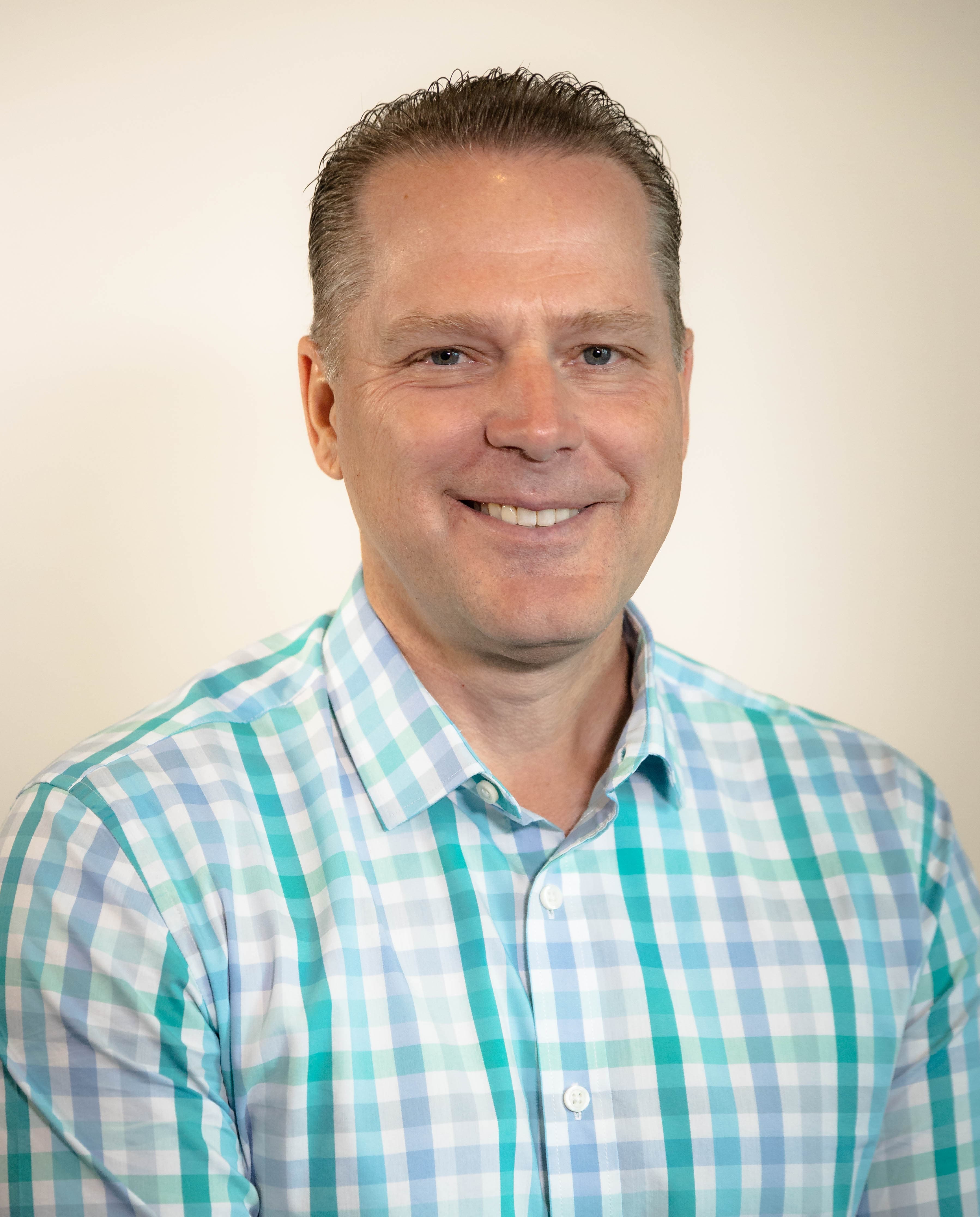
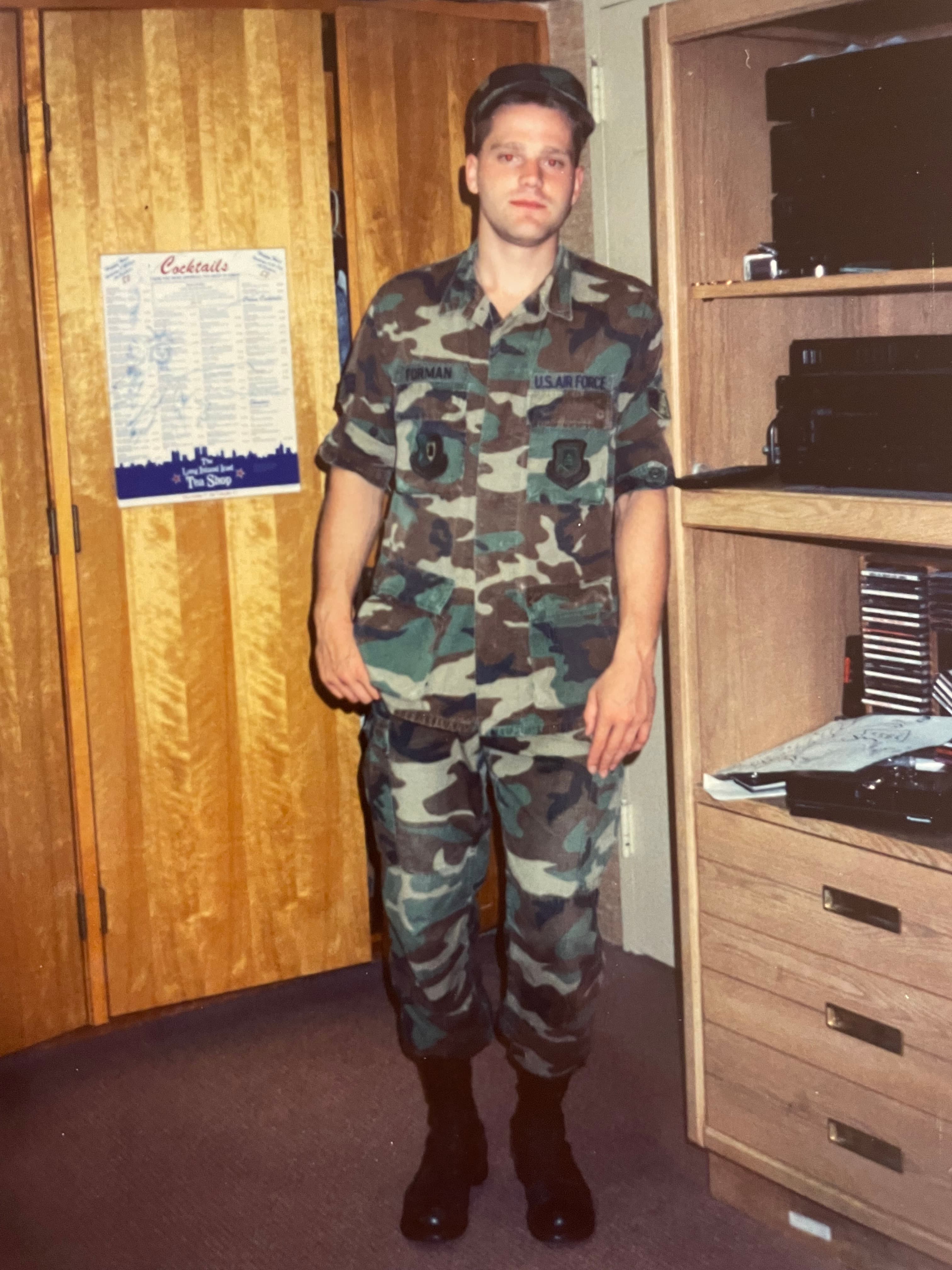
Could you share a little about Aston Carter’s new SkillBridge Program, helping transitioning Veterans? How important is it to help Veterans transitioning into civilian life?
Steve: We’re just starting to set this up for Aston Carter, and the SkillBridge Program is such a win-win for both organizations that are partnering, and the service members. If you apply and get accepted to the program, you have 180 days to intern while you’re still in the military to intern with civilian organizations while still getting paid through the military. They learn about resume building and interviewing and get a comfort level with working with an organization outside of the military. With Aston Carter, we just had our first person accepted, so we’re starting internally. We’re setting a goal of getting twelve interns through our program this year and hopefully hired into our organization or a civilian organization permanently. We’re trying to get comfortable with how this works for the service members and our organization before we take it to our clients, which is where we can make a sizeable impact. That will create so many opportunities for Aston Carter to help place service members with the great organizations we partner with. We have 25 - 35k contract employees on our books every week, and we can hopefully start to place thousands of military people in those positions, which is why we’re so excited about the program.
Stuart: What I always come back to is our mission statement as a company: "unite great people and organizations to realize their full potential.” When I think about SkillBridge, the Gary Sinise Foundation, and other organizations out there, it’s about creating this ecosystem of people that can help solve our client's pain due to the lack of qualified candidates in the marketplace right now. It’s our obligation to look at different opportunities, access talent, and make that connection between client need and employee want. I see SkillBridge bridging that gap, bringing those two communities together and making the transition easier for Veterans and also for the onboarding customer who is acquiring that talent.
How did you learn about GSF?
Stuart: I’ve been familiar with the Gary Sinise Foundation for a few years. As president of Aston Carter, and as a Veteran, I got brought into very early conversations with the Foundation about building our partnership. The initial conversation was about how we go from being a financial contributor to Gary Sinise Foundation Snowball Express program, to becoming much more of an active participant in bridging the unemployment gap in the marketplace. We also want to help the spouses of our military Veterans as they are another untapped talent pool.
Steve: I learned about the Foundation through our Head of Diversity, Equity, & Inclusion at Aston Carter, Donnell Campbell, and through our employee resource group (ERG) Service to Solvers, which supports Veterans, military spouses, and First Responders.
How important is it to you and Aston Carter to be on this mission of service to our Veterans and their families?
Stuart: I think when you’re at this stage in your life and career, you start to think about legacy and what you’re going to leave behind. In the last two and a half years, I’ve made a commitment to build an incredibly diverse executive team that has pipelines of diverse talent. Creating opportunities for our service members is part of that and is rooted in our company’s core values, specifically our value of inclusion. We are dedicated to making sure all underrepresented communities, like the Veteran community, have the opportunity to achieve their professional and personal goals. There are a lot of organizations out there committed to the military, but what I’ve found with the Gary Sinise Foundation is that the commitment is deeper than service members transitioning out of the military. It's also the commitment to the whole community that supports our Veterans.
Steve: When you get to this point in your career, it’s less about you and building your career, and it becomes more about the opportunity to give back. To look back at this point, remember how you got here and what are the life experiences that really shaped who you are. I don't want to waste this opportunity, and through Aston Carter, we have the chance to do this now. I really believe the military community can positively influence the workforce and they can do it now.

